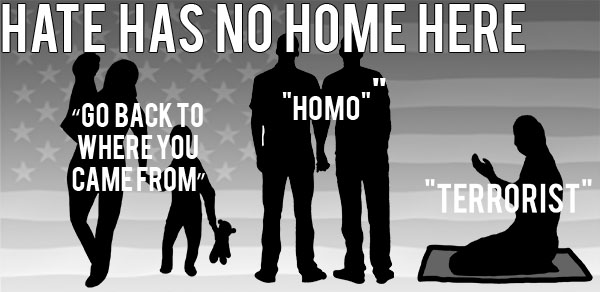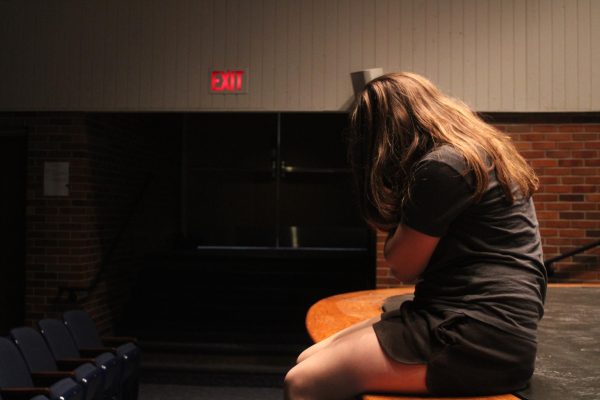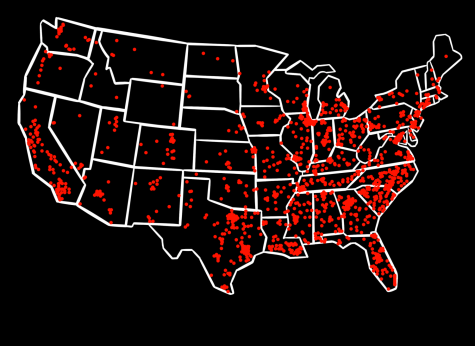Administrators: consider combatting hate speech by revising policy
Incidents of racism, nationwide hate speech call for new considerations, possible revisions

October 6, 2017
The Unite the Right rally in Charlottesville, Virginia saw an unprecedented gathering of various far-right groups, including white nationalists and neo-Nazis. Attendees, who originally came to protest the removal of a Robert E. Lee statue, donned symbols such as swastikas and Confederate flags and chanted anti-semitic phrases, like “Jews will not replace us.” The event prompted national debate on hate speech and how it should be regulated, if at all.
The Constitution and Supreme Court clearly state hate speech is free speech. There is no doubt these institutions speak for the law of land. However, within the walls of GBS, using hate speech would be “inappropriate and problematic,” according to Dr. Lauren Fagel. She also says she “would use every possible power [she has] to make it stop.” As it currently stands, there is no explicit mention of “hate speech” in District 225 board policies.
Therefore, the Oracle Editorial Board believes existing policies should be reformed to include explicit mention of hate speech. Doing so would prevent such occurrences in school and inform students of what they cannot say in regards to hate speech. To recognize the complexities of first amendment rights and the threshold of what can be harmful, revised policies should define the scope of hate speech to establish a clear standard.
Even without explicit policies, South administration currently pursues the prevention and deterrence of hateful language. With that said, the Oracle editorial board has cause for concern in the resurgence of racism and bigotry in the media, which may lead to an increase in hate speech across many realms. This concern, specifically as it relates to GBS, is partially rooted in common forms of hate speech that may be found throughout various high schools, not excluding our own, such as vandalism on desks and in bathrooms.
Public schools have a responsibility to create an inclusive environment for students – something GBS already works to do, according to Fagel. The possible presence of hate speech, however, poses the risk of students feeling unsafe, whether insults have been directed at one person specifically or at a group. This trend can be seen at the University of Virginia.
Sarah Kenny, UVA student council president, says tensions in Charlottesville have escalated since the rally. Within the school, some first-year minority students have responded to campus uneasiness by questioning their safety. If sentiments such as these from South students were present, they could inhibit student abilities to focus in classes and negatively affect their emotions outside of school. GBS, keeping in its mission, should do everything possible to prevent this.
Amending current policies would fix existing confusion and ambiguity. The issue of free speech versus hate speech is complex and could be debated with great thought, but in a context where discipline is involved, having a clear definition is key — not just for staff, but for students as well.
In regards to free speech parameters in school, Fagel says comments could be condemned “if it causes a substantial disruption to the school environment.” Additionally she said in regards to cases involving hate speech, “the courts are pretty favorable to schools.”
Students should be aware of their freedoms and limitations. If the threshold for what is considered hate speech is low, students should know so they are self-aware when they speak their mind. As it stands, board policies 8470 on harassment and 8480 on hazing, bullying or aggressive behavior outline consequences for offensive acts from one party targeted towards another named individual or group – not for broad hate speech.
Board Policy 8470 says “name calling, using derogatory slurs, wearing or possessing the items depicting or implying hatred, ridicule, or prejudice” are examples of prohibited behavior. Additionally, Fagel said in an email, “I believe this policy addresses hate speech” and “demonstrates the district’s strong commitment to protecting students from harassment.” By calling hate speech out by name, however, South can mitigate the potentially disrupting effects of polarizing current events before they occur.
The Oracle Editorial Board recognizes that the issue of free speech versus hate speech is a nebulous and difficult one. The Editorial Board also commends existing efforts by the school to create an accepting and safe environment, including the “Hate Has No Home Here” posters distributed by individual teachers. Additionally, the Oracle Editorial Board appreciates the fostering of student thought by the administration and staff at South, and recognizes the importance of freedom of expression.
However, it is important that students be limited in expression when it comes to hateful and potentially harmful language and messages. If the policy were to specifically identify the boundaries of free speech as exists within the school environment, all students and staff could be ensured a safe environment. It is ultimately for this reason, the safety and comfort of those on campus, that the Oracle editorial board believes District 225 board policies should be revised to specifically address hate speech.












